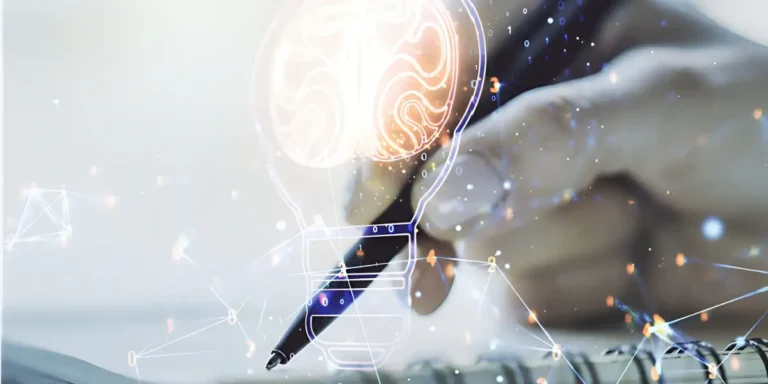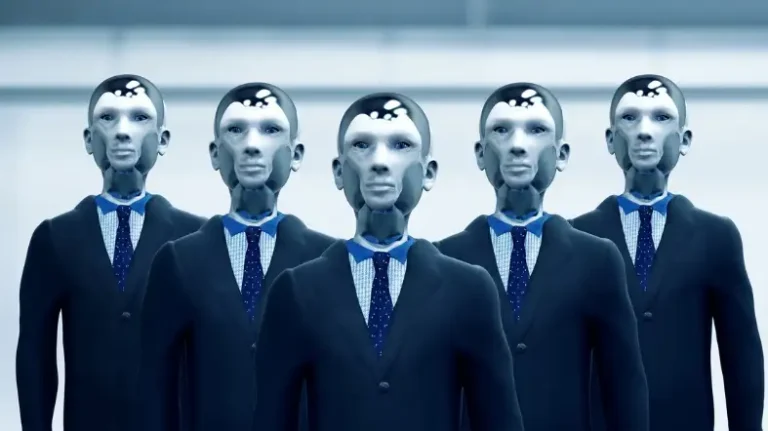Here is the definitive guide to responding to the frequently asked issue, “Will AI replace computer scientists?” Artificial intelligence’s sophistication is certainly affecting how we approach different professions.
Some believe AI will eventually replace computer scientists since AI has automated many computer science duties.
Let’s find out the possibilities of ai to replace scientists and also explore the potential impact and pros and cons of AI in this field.
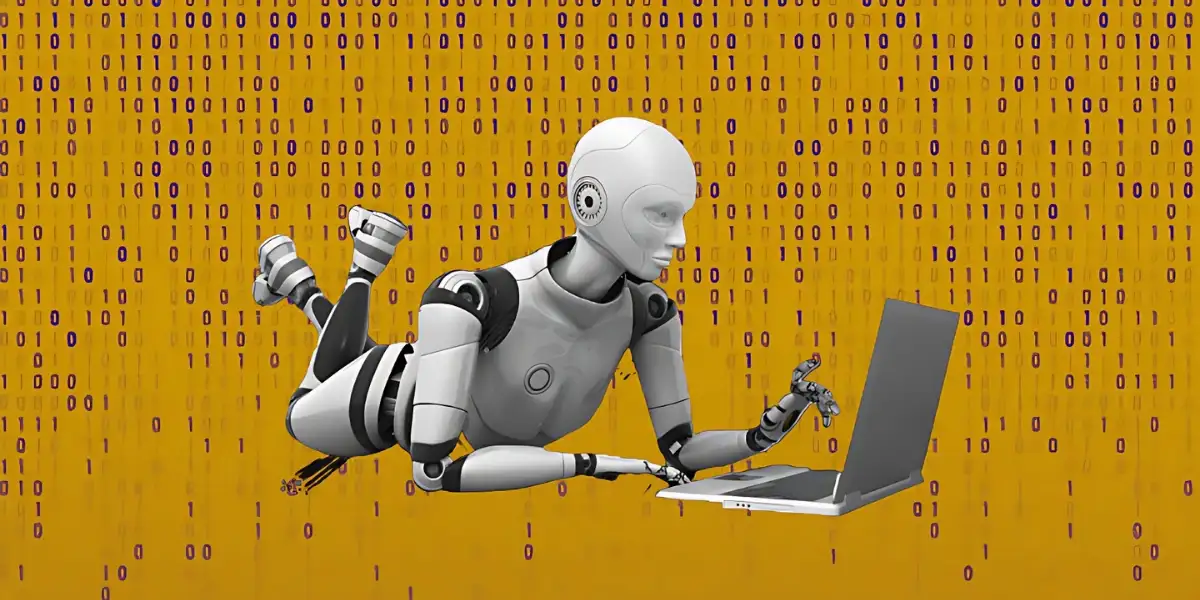
Will AI Replace Computer Scientists?
No, AI is unlikely to replace computer scientists completely. AI can undertake many computer scientists’ jobs, but not all.
AI can automate repetitive tasks, improve code quality, and even suggest solutions to problems. However, computer scientists bring essential human skills that AI can’t replace.
What Are The Possibilities Of AI Replacing Human Computer Scientists?
Predictive maintenance and self-healing systems:
As technology advances, the need for reliable and efficient maintenance of systems becomes increasingly critical.
AI can play a vital role in this regard by providing predictive maintenance and self-healing capabilities to computer systems.
AI can learn from historical data and use it to predict and prevent potential system failures before they occur.
AI can also determine the source of a malfunction and fix it without human participation.
Autonomous problem-solving and decision-making:
AI gives computers autonomous problem-solving and decision-making. By analyzing vast amounts of data and learning from past experiences, AI can make decisions and solve complex problems without human intervention.
This capability is particularly useful in scenarios where human involvement may be too slow or error-prone, such as in financial trading or autonomous vehicles.
AI-assisted creativity and innovation:
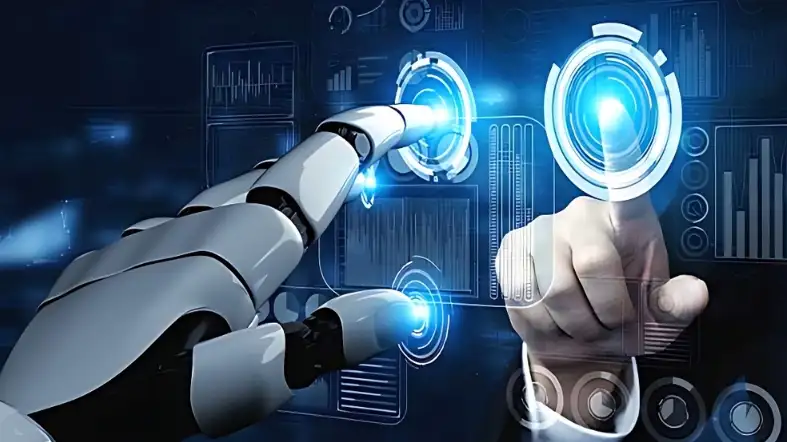
AI can assist in creative tasks that have traditionally been the domain of human experts.
By analyzing patterns and learning from past examples, AI can generate new and innovative ideas in fields such as art, music, and writing.
AI can also provide feedback and suggestions to human creators, helping them refine and improve their work.
Intelligent data analysis and pattern recognition:
AI’s ability to analyze massive volumes of data and find patterns that humans may miss is its most significant benefit. AI algorithms can learn from large data sets and find insights and trends that humans cannot.
AI can analyze data faster than humans, enabling real-time financial trading, fraud detection, and medical diagnosis.
Intelligent system optimization and tuning:
AI can optimize computer systems by automatically adjusting system settings and parameters to improve performance and efficiency.
This can be particularly useful in complex systems where performance tuning can be a time-consuming and challenging task.
By analyzing system performance data, AI can identify areas for optimization and fine-tune system settings to achieve optimal performance.
AI can also monitor systems in real-time and adjust settings dynamically to maintain peak performance.
Automated software development
The possibility of automated software development using AI is becoming increasingly feasible.
AI tools and techniques can be used to automatically generate code, design software architectures, and even create UI/UX designs.
Automated software development can significantly reduce development time and costs and improve software quality and performance.
Self-improving algorithms
AI algorithms can also be designed to improve themselves over time through a process called self-learning or self-training.
AI systems can increasingly solve complex problems without human intervention or expertise.
Self-improving algorithms could accelerate machine learning, NLP, and computer vision.
Intelligent debugging and error correction
AI can also be used to improve software quality by automatically detecting and correcting errors and bugs.
This can save developers time and effort and improve overall software reliability and performance.
Intelligent debugging and error correction can be achieved through techniques such as automated testing, machine learning-based error detection, and self-healing systems.
Automated testing and quality assurance
AI automates software testing and quality assurance. This can help developers find and fix issues early on, decreasing the likelihood of defects and errors in the final output.
Frameworks, machine learning, and intelligent test generation can automate testing.
Natural language programming interfaces
AI can also create natural language programming interfaces, allowing developers to interact with software using natural language commands and queries.
This can make programming more accessible and intuitive and reduce the need for specialized programming knowledge.
Natural language programming interfaces can be achieved through natural language processing, machine learning-based language translation, and speech recognition.
Intelligent data analysis and pattern recognition
AI can find patterns and insights in vast data sets that people may miss.
This can help companies make better decisions and find new development and innovation opportunities.
Machine learning, deep learning, and neural networks enable intelligent data analysis and pattern detection.
What Are The Potential Impacts Of AI In The Job Industry Of Computer Scientists?
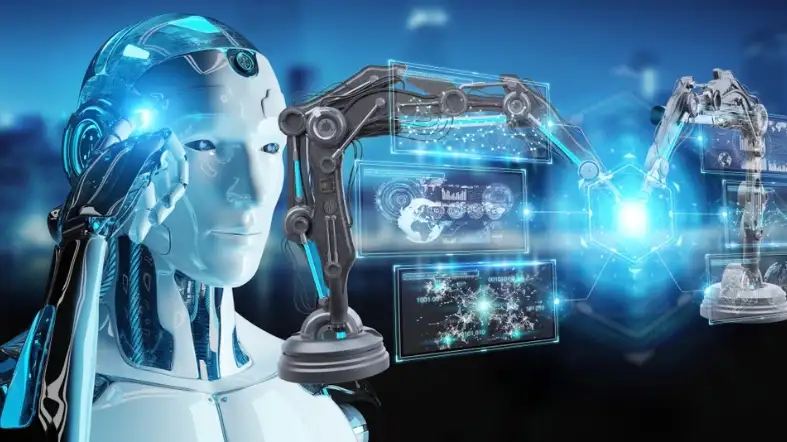
Job Displacement:
One of the most significant impacts that AI may have on the job industry of computer scientists is job displacement.
With the increasing advancements in AI technology, some jobs in the computer science industry may become automated.
Automation may reduce computer scientist jobs. Not all computer science jobs are automatable.
Creative, problem-solving, and critical-thinking jobs are less likely to be mechanized.
Increased Efficiency:
AI may boost computer scientist efficiency. Computer scientists can focus on critical thinking and creativity by automating monotonous jobs with AI.
This efficiency could boost corporate productivity and provide more computer science jobs.
Changes in Skill Requirements:
AI technology may revolutionize computer scientist expertise. AI advances may require computer scientists to develop new abilities.
They may need to study machine learning methods, data analysis, and NLP. These talents may enhance demand, creating more computer science jobs.
New Job Opportunities:
AI may produce new computer scientist jobs. Computer scientists may find new jobs as AI technology develops.
Computer scientists may need to create new algorithms or software for AI systems.
AI Experts in Demand:
AI professionals may be in demand as technology advances. This may require computer scientists to comprehend AI technologies like natural language processing, machine learning, and deep learning.
These specialists may have more work prospects and greater remuneration.
Improved Decision-Making:
AI technology has the potential to assist computer scientists in making more informed decisions.
Computer scientists can analyze massive data sets, find trends, and anticipate with AI algorithms.
This could lead to better decision-making, which can ultimately benefit businesses and organizations.
Need for Ethical Considerations:
Ethical considerations also arise from computer scientists using AI technology.
AI-based autonomous vehicles, healthcare systems, and decision-making algorithms may have ethical issues for computer scientists.
This may require ethics and AI expertise to ensure ethical development and use.
Collaboration with Other Disciplines:
AI technology is not limited to the computer science industry. Healthcare, finance, and marketing use it too.
Computer scientists may need to work with other experts to create and implement AI-based solutions.
This could result in new job opportunities and a need for interdisciplinary skills.
How Will Scientists Prepare To Hold Their Job In The Age Of AI?
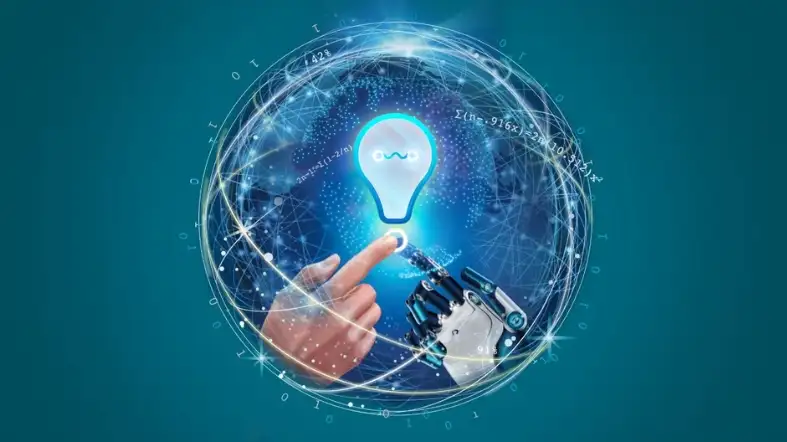
Embrace Continual Learning:
To prepare for the age of AI, scientists must be open to ongoing learning. It is not enough to rely solely on the skills and knowledge acquired in college or previous work experience.
Instead, you must embrace new technologies, and upskill through training, certifications, and formal education.
For instance, learning new programming languages, data analysis, and AI development techniques can help you stay up-to-date with the evolving industry.
Continual learning is essential in developing an understanding of the potential of AI and discovering how it can help scientists solve problems more effectively.
Collaborate With AI:
Collaborating with AI systems is an effective way for scientists to enhance their skills and knowledge.
AI can assist in analyzing data, identifying patterns, and automating routine tasks. This collaboration increases efficiency and productivity and expands your AI skill set.
Furthermore, collaboration with AI can help scientists to identify new avenues for research and experimentation.
It can assist in identifying data patterns that would have been challenging to identify with traditional methods.
Develop Ethical Standards:
As AI continues integrating into every aspect of our lives, it is vital to develop ethical standards.
Scientists must be aware of the potential consequences of AI and ensure that ethical standards guide their work.
Be mindful of bias, discrimination, and the potential for AI to replace human decision-making.
Developing ethical standards for AI requires consideration of the consequences of AI’s actions, its effects on society, and the impact on the individuals and communities affected by AI systems.
The development of ethical standards should involve stakeholders, including experts from diverse backgrounds, policymakers, and the general public.
Emphasize Creativity:
While AI can perform routine tasks efficiently, it cannot replace human creativity. Scientists must emphasize creativity and innovation in their work.
They should explore new ideas, think outside the box, and use AI to support creative processes rather than replace them.
To encourage creativity in the age of AI, scientists should prioritize opportunities for experimentation and innovation.
The use of AI can also assist in creative processes, providing new insights and innovative solutions to complex problems.
Stay Current on Legal Regulations:
As AI advances, regulations surrounding its use are evolving as well. Scientists must stay current on legal regulations and guidelines that govern AI.
Be aware of data privacy laws, AI-related patents, and other relevant legal issues.
Scientists should also be aware of the ethical implications of AI and advocate for regulations and policies that align with ethical standards.
To stay current, they should engage in discussions with policymakers, legal experts, and industry leaders to ensure that their work aligns with legal requirements.
Foster Diversity:
AI systems can only be as unbiased and ethical as those who design and implement them.
Scientists should aim to foster diversity and inclusion in their work, ensuring that different perspectives and experiences are considered.
This can help prevent biased algorithms and improve AI decision-making.
Fostering diversity and inclusion requires active recruitment, hiring, and decision-making effort.
It means including people from diverse backgrounds and experiences in research teams and engaging in open discussions about the ethical implications of AI.
Cultivate Soft Skills:
While technical skills are essential for scientists, soft skills are equally important. Cultivate communication, collaboration, leadership, and problem-solving skills.
These skills will help you navigate the increasingly collaborative nature of the AI-driven workforce.
Effective communication and collaboration are critical to the success of AI projects, where teams of scientists work with AI systems to solve complex problems.
Soft skills can also help scientists lead interdisciplinary teams effectively and navigate AI’s ethical and legal implications.
What Are The Challenges And Limitations Of AI In The Computer Scientist Job Sector?
AI Is Not a Substitute for Human Expertise:
One of the major challenges of AI in the computer scientist job sector is that it cannot replace human expertise.
AI algorithms are designed to perform specific tasks based on pre-defined rules and data sets.
However, they cannot make decisions based on intuition or personal experience.
This means that computer scientists will still be needed to provide a human perspective and oversee AI systems.
Lack of Data Quality and Quantity:
The quality of AI algorithms depends on the data they are trained on. The lack of quality and quantity of data can severely limit the accuracy and effectiveness of AI systems.
This can be a significant challenge in the computer scientist job sector as the availability of relevant data sets can be limited or nonexistent.
AI Can Be Biased:
AI algorithms can be biased due to the data they are trained on or how they are programmed.
This can result in discriminatory outcomes and negatively impact the computer scientist job sector.
Ensuring that AI systems are programmed to be unbiased and inclusive is essential.
Security and Privacy Concerns:
AI systems can be vulnerable to security breaches and data privacy concerns.
This can lead to significant challenges in the computer scientist job sector as sensitive information can be compromised.
Developing robust security measures to ensure the safety of AI systems and data is crucial.
Ethical Concerns:
AI technology raises ethical concerns, particularly in the computer scientist job sector.
Using AI systems can result in the displacement of human workers and the automation of certain job functions.
It is vital to ensure that AI systems are developed and used in an ethical and responsible manner to minimize the negative impact on the workforce.
Lack of Explainability:
AI algorithms can be complex and difficult to understand, even for computer scientists.
This lack of transparency can be a significant challenge in the computer scientist job sector, where accountability and transparency are critical.
It is essential to develop explainable AI systems that can provide clear and understandable insights into their decision-making process.
Cost and Resource Intensive:
Developing and implementing AI systems can be expensive and resource-intensive.
This can be a significant limitation in the computer scientist job sector, particularly for small businesses and startups.
AI systems’ cost and resource requirements can make adopting this technology difficult, limiting their ability to compete with larger organizations.
It is essential to develop cost-effective and scalable AI systems that can be accessible to a wide range of businesses and organizations.
FAQs
AI And Computer Science—What’s The Difference?
AI is a computer science field that creates intelligent devices. AI and computer science are similar but distinct.
Computer science encompasses numerous fields, including AI.
Can AI Replace Computer Scientists?
AI may automate many computer science duties but will not replace computer scientists.
AI can’t yet solve difficult issues, think creatively, or converse with humans.
AI system development and interpretation require computer scientists.
How Is AI Changing Computer Science?
AI affects computer science. It automates many laborious activities. AI is also creating new apps and systems.
Will AI Kill Computer Science Jobs?
AI may automate some computer scientists’ work, but it will not eliminate their jobs.
Instead, it may produce AI, data science, and cybersecurity jobs.
Computer Science AI Requires What Skills?
Computer science AI requires good programming, mathematics, statistics, and data processing skills.
Know machine learning algorithms and AI frameworks.
Computer Science’s AI Future?
AI in computer science is promising. AI technology will allow the creation of more complicated applications and systems as they grow.
AI will also advance robots, autonomous vehicles, and smart cities.
Conclusion
The rise of AI has sparked concerns about the future of computer scientists.
While AI has the potential to automate certain aspects of their work, it cannot replace their critical thinking and creativity.
Instead, AI can complement their skills, allowing them to focus on more complex problems and innovations.
Therefore, the role of computer scientists is here to stay, and their expertise will be even more critical as we continue to develop and integrate AI into various industries.

